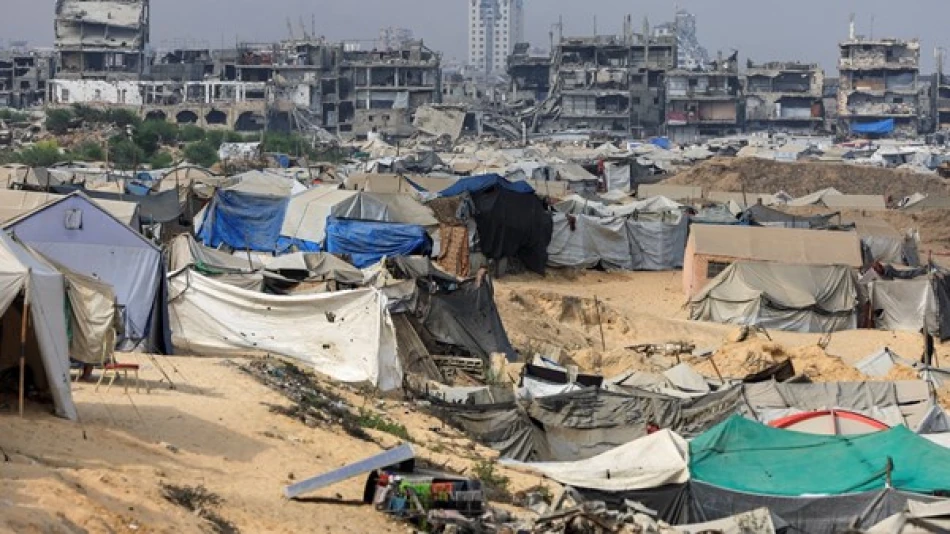
European Nations Condemn Israel's Plan to Seize Control of Gaza
Europe Draws Red Line: Eight Nations Condemn Israel's Gaza Control Plan as Humanitarian Catastrophe
Spain and seven other European nations issued a sharp rebuke of Israel's newly approved plan to seize control of Gaza City, warning that the operation could trigger mass civilian casualties and displace nearly one million Palestinians. The coordinated diplomatic response signals growing European frustration with Israel's military strategy and represents one of the strongest multilateral condemnations from Western allies since the conflict escalated.
Netanyahu's Security Cabinet Approves Controversial Operation
Israeli Prime Minister Benjamin Netanyahu's security cabinet approved the large-scale Gaza City operation on Friday, despite mounting domestic and international pressure for restraint. The decision comes as foreign powers push for a negotiated ceasefire that would secure the release of remaining hostages and alleviate the humanitarian crisis in the Palestinian territory.
The timing of the approval suggests Israel is accelerating its military objectives before potential international intervention or ceasefire agreements can take hold—a strategy reminiscent of previous Middle Eastern conflicts where belligerents rushed to establish facts on the ground before diplomatic pressure intensified.
European Unity Reflects Shifting Diplomatic Landscape
The joint statement from Spain, Iceland, Ireland, Luxembourg, Malta, Norway, Portugal, and Slovenia represents a notable diplomatic coalition. These nations warned that the planned operation would only "exacerbate the humanitarian crisis and threaten the lives of all hostages."
The European response mirrors similar multilateral interventions during previous Gaza conflicts, but the breadth of the coalition and the explicit language used suggests a hardening of European positions. Unlike the more cautious statements typically issued by larger EU powers like Germany or France, this group has consistently taken stronger stances on Palestinian issues.
Two-State Solution Under Threat
Perhaps most significantly, the European ministers explicitly linked the military operation to broader peace prospects, arguing that seizing control of Gaza City would create "a major obstacle to implementing the two-state solution, the only path toward comprehensive, just, and lasting peace."
This framing suggests European officials view the current military campaign not as a temporary security operation, but as potentially reshaping the territorial and political landscape in ways that could preclude future Palestinian statehood.
Strategic Implications for Regional Stability
The displacement of up to one million Palestinians—roughly half of Gaza's population—would create the largest forced migration in the region since Syria's civil war. Such movement would likely strain neighboring countries, particularly Egypt, which has repeatedly stated it will not accept large-scale Palestinian refugee flows.
For Israel, controlling Gaza City would represent a significant shift from its 2005 disengagement strategy, potentially requiring long-term occupation and governance responsibilities that proved costly during previous periods of direct control.
International Pressure Mounts
The European condemnation comes as international mediators intensify efforts to broker a ceasefire deal. The coordination between these eight nations suggests a deliberate strategy to increase diplomatic pressure on Israel while supporting ongoing negotiation efforts led by Qatar, Egypt, and the United States.
This diplomatic offensive reflects a broader European concern that prolonged military operations could destabilize the region further and complicate long-term peace efforts. The explicit mention of hostage safety also indicates European officials believe military escalation could jeopardize rather than advance efforts to secure their release.
Most Viewed News

 Layla Al Mansoori
Layla Al Mansoori






